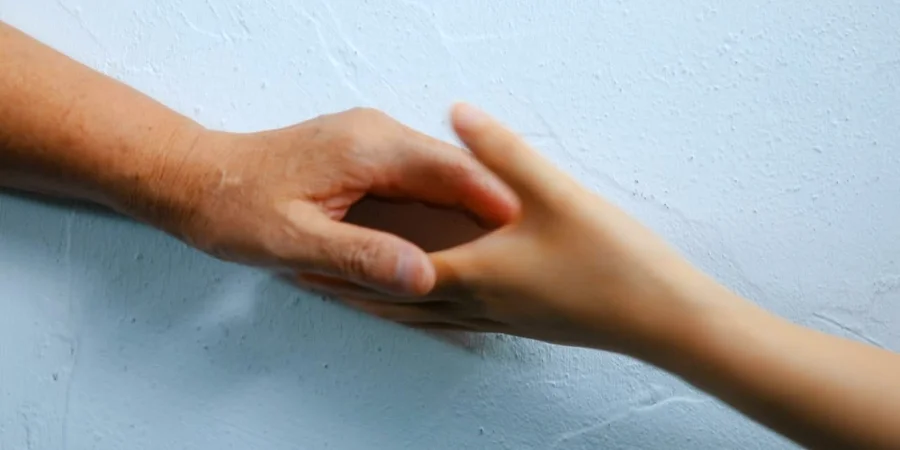
Written by:

Medically Reviewed by:
Last Updated:
February 18th, 2025
Opioid Rehab | Opioid Addiction Treatment
As the opioid crisis continues to worsen in the UK, we are often asked the question: what is opiate rehab? Opiate rehab is a specialised treatment programme that aims to help people suffering from opiate addiction – it can be the lifesaving treatment you need if you are struggling to break free from opiates. Whether you have been self-medicating or using opiates recreationally, our understanding and friendly team can assist you in getting your life back on track.
Why is opiate rehab important?
Opiates, also known as opioids, are extremely addictive substances, and once you are caught in the cycle of drug abuse, it can be very difficult to break free on your own. Opiate rehab provides you with a safe and supportive environment in which to detox from opiates and begin your journey to recovery. Our team of experts will work with you throughout your treatment to guarantee you have the best chances of success.
Some of the benefits of opiate rehab include:
- Ability to safely overcome both physical and psychological dependence
- Treatment for underlying mental health issues
- Improved health and well-being
- Provides the tools you need to maintain your sobriety
- Gives the opportunity to rebuild relationships in a healthy way
- Comfortable and therapeutic surroundings
- Access to a support network and professional help
Having access to a comprehensive treatment programme alongside a knowledgeable team of experts is key to long-lasting sobriety. At Primrose Lodge, our end goal is to see every single one of our clients achieve a clean, healthy, and fulfilling life.
What treatment can I expect to receive in opiate rehab?
If you have decided to embark on your journey to recovery and attend opiate rehab, you may be wondering what a typical day looks like. Throughout your inpatient stay with us, you will undergo several different stages of recovery.
The first stage is a opiate detox – this can be an unpredictable and challenging process but is a necessary stepping stone. Thankfully our team will be on hand to ensure your comfort and safety while your body expels any toxins from its system.
The second stage of rehab focuses on the psychological aspects of your opiate use and is vital in preserving your recovery once you move on from rehab. Gaining an understanding of what led you to abuse drugs, learning about any co-occurring mental health issues, and building coping mechanisms and relapse prevention techniques will all benefit you in your ongoing battle with opiates. During your stay, you will follow a set timetable including various therapies, activities, exercises, and educational workshops.
At Primrose Lodge, you will have access to a variety of different therapies and treatments, including:
- 12-step programme
- Dialectical behaviour therapy (DBT)
- Cognitive behaviour therapy (CBT)
- Mindful health programmes
- Art therapy
- Group therapy
- Lectures and workshops
- Meditation
- Gong baths
During opiate rehab, you will also have the opportunity to share your experiences with others who are going through similar challenges – this can be a powerful way to build relationships and develop a support network around you.
Our client, Simon, shares his rehab experience and talks about the group setting, saying:
“It was the support network – they just make you feel welcome and they know what you’re going through. They genuinely care and they are doing the detox with you so they understand. Some people in the group had been there longer than me and hearing them love it so much made me feel connected and we had a real bond.”
Our focus is on creating a morale-boosting environment that allows our clients to relax and absorb all of this new information away from everyday stress. You will be taken away from the temptation to relapse, which means you can build new, healthy habits surrounded by like-minded friends who truly understand what you are going through.
What types of opiates require rehab?
All opiates have the potential for dependency to quickly develop with frequent use, and rehab is a highly beneficial tool in overcoming this. Opiate misuse can cause serious harm, not only to your health, but to your relationships, work, and finances. Our medical team has specialist experience in dealing with the most common types of opiate rehab, including:
If any of these substances have gradually taken over your life, it is not too late – opiate rehab can be the light at the end of the tunnel. Recovery is possible, no matter the type of opiate you are abusing.
Do I need opiate rehab?
As legal prescription medications, there is a misconception that opiates are not considered harmful, and their misuse is often brushed under the rug. There are a number of signs that can indicate whether you or a loved one could benefit from opiate rehab, and if you are experiencing any of them, do not delay in seeking professional support. If you have started to feel as though you need opiates to get through the day, or if your drug use is starting to interfere with work, school, or home life, it may be time to seek professional help. Other common indicators that opiate rehab may be beneficial include:
- Experiencing withdrawal symptoms when you try to stop using or reduce your dose
- Building up a tolerance, meaning you need to take more of the substance to get the same effect
- Spending increasing amounts of time and money on obtaining and using opiates
- Continuing to use opiates despite negative consequences, such as relationship problems or financial difficulties
If any of these are true for you, please do not hesitate to get in touch. We understand how difficult it can be to reach out for help, but we promise that you will be met with nothing but compassion and understanding.
Does completing opiate rehab mean I’m cured?
As a chronic and relapsing condition, an unhealthy relationship with opiates can sadly not be cured by rehab alone. Although rehab can give you all the resources and techniques you need to recover, it will be up to you to put in the hard work required. Recovery is certainly possible for those who are dedicated to turning their life around, and opiate rehab can provide you with all the tools you need to build a strong foundation for recovery.
What happens after opiate rehab?
Once you have completed opiate rehab and find yourself walking back out into the real world, it is vital that you have a solid plan in place to help you stay on track. More often than not, our clients can feel overwhelmed at the prospect of returning to their everyday life, including exposure to triggers that may lead to relapse. This is truly where the hard work will begin.
Attending aftercare and local support groups is highly recommended; here, you will be able to talk with a network of others in similar circumstances. This is proven to bolster your chances of staying clean and avoiding relapse.
It is also important to remember that recovery is a journey filled with highs and lows; some days will surely be better than others, but you should not give up. Any temptation or relapse should be considered a learning curve, rather than a failure. If you find yourself tempted into taking opiates, reach out for help immediately. The sooner you catch it, the easier it will be to get back on track.
Next steps
Admitting you need help and starting opiate rehabilitation is never easy, but with the right support, it is possible to achieve your goals. If you feel like it is time to rebuild your life, restore your health, and start living to the fullest, give Primrose Lodge a call today. We are always available to answer any questions you may have and will be happy to provide you with any information you need.





